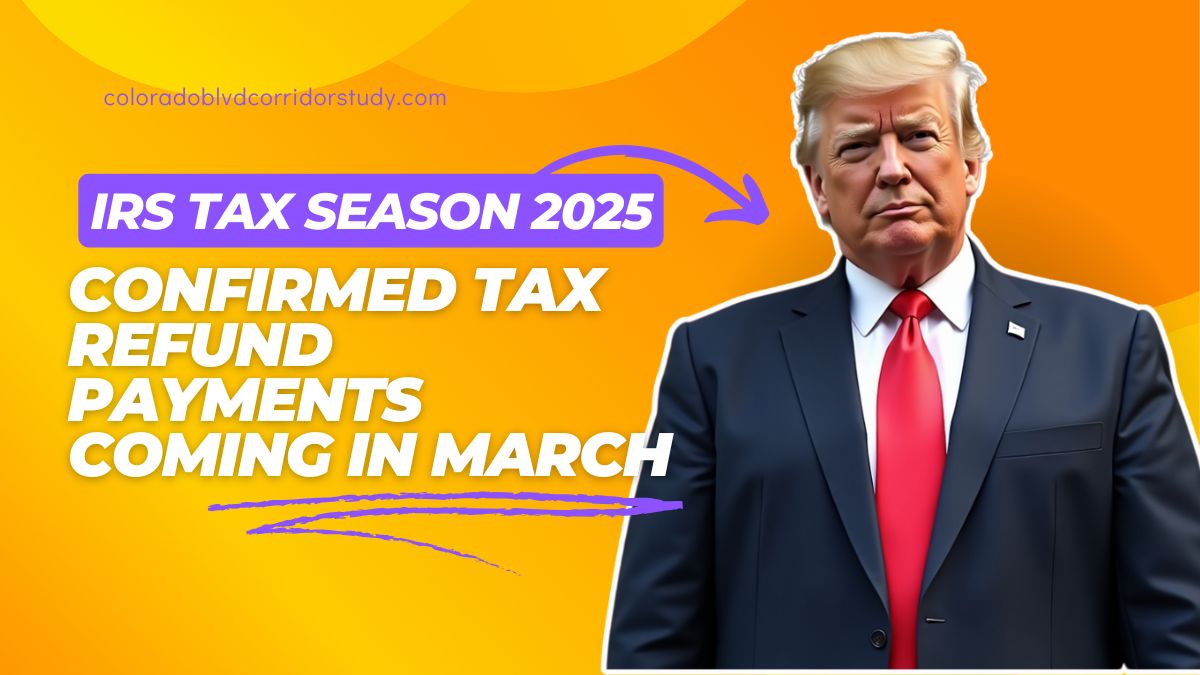Meeting monthly expenses can be a challenge for many individuals, especially for those in the United States with limited income or, in February, only receiving Disability payments. In such cases, a tax refund from the IRS can provide much-needed financial relief, covering part of the upcoming expenses.
While it’s true that United States citizens are not required to plan their spending around their tax refund, receiving this additional payment can certainly improve their financial situation and standard of living.
If you’ve already submitted your tax return documents to the IRS, you may be wondering when you can expect to receive your refund. Depending on when you filed, the refund could be on its way or already deposited into your bank account. The timing of your payment depends on several factors, with the most crucial one being that you have already submitted the necessary documentation.
When Will the IRS 2025 Tax Refund Be Deposited?
The arrival date of your 2025 Tax Refund will vary for different individuals across the United States. The IRS processes tax refunds and sends payments based on the order in which Tax Returns are filed.
However, the filing date is not the only factor affecting the timing of your refund. Other elements, such as the method of filing and whether your return requires additional processing, can influence when the IRS deposits your refund.
Refund Payment Timeline Based on Filing Date
Your refund’s arrival depends largely on when you filed your tax return. Below is an approximate schedule based on the filing date:
| Filing Date | Estimated Direct Deposit Date |
|---|---|
| January 27 | February 17 |
| January 28 | February 18 |
| January 29 | February 19 |
| January 30 | February 20 |
| January 31 | February 21 |
| February 1 | February 22 |
| February 2 | February 23 |
| February 3 | February 24 |
| February 4 | February 25 |
| February 5 | February 26 |
| February 6 | February 27 |
| February 7 | February 28 |
| February 8 | March 1 |
| February 9 | March 2 |
| February 10 | March 3 |
| February 11 | March 4 |
| February 12 | March 5 |
| February 13 | March 6 |
| February 14 | March 7 |
| February 15 | March 8 |
| February 16 | March 9 |
| February 17 | March 10 |
This guideline provides a useful way to estimate when you’ll receive your Tax Refund.
Tips for Faster Tax Refund Payments
To ensure you receive your tax refund as quickly as possible, consider the following:
- Submit All Required Documentation: Ensure that you have submitted all necessary forms and documents with correct details.
- No Outstanding Tax Debt: Make sure that you do not owe any taxes, as this could delay your refund.
- Activate Direct Deposit: Opt for Direct Deposit, as it is the fastest and most reliable method for receiving your refund.
Receiving your IRS tax refund can provide essential financial support, especially for those facing difficulties with monthly expenses. By understanding the refund schedule and ensuring that all documentation is submitted correctly, you can plan ahead and receive your refund in a timely manner.
Always remember to activate Direct Deposit for the fastest payment method, and keep track of your refund status through the IRS tools available to you.
FAQs
How can I track my tax refund?
You can track your tax refund through the IRS’s “Where’s My Refund?” tool on their website. It will give you the status of your refund and an estimated deposit date.
What if I haven’t received my refund by the expected date?
If you haven’t received your refund by the date provided, you can use the IRS tracking tool to check the status. In some cases, delays may occur due to additional processing requirements.
Is there a way to speed up my refund?
Filing early and selecting Direct Deposit will help speed up your refund. Ensure that your tax return is complete and accurate to avoid delays.

